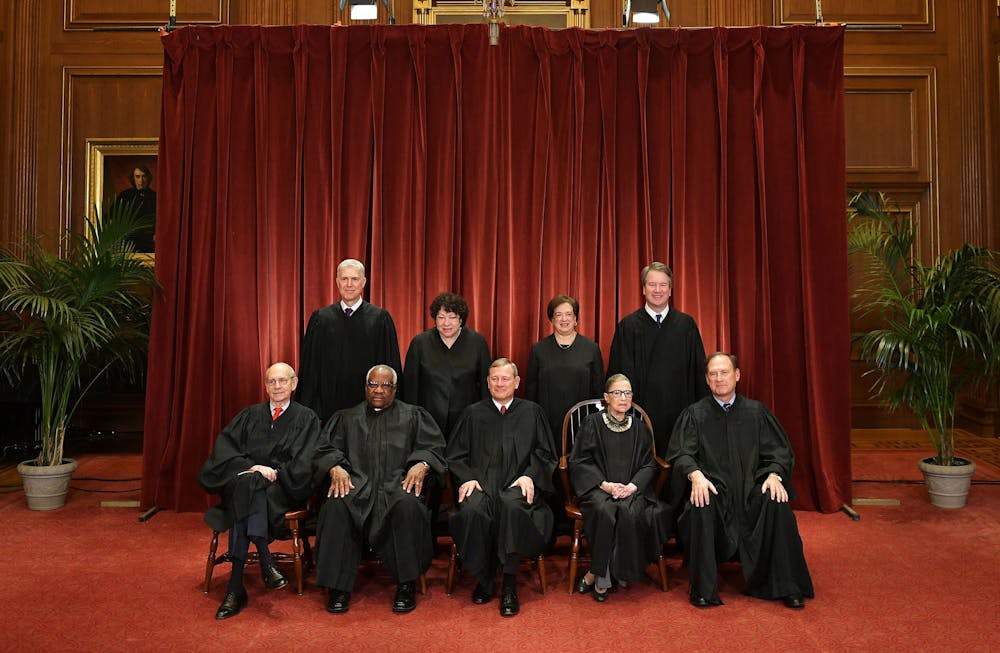Halfway through my freshman year at IU, I switched my major to study law and public policy. I dreamed of becoming an immigration lawyer and eventually joining the Supreme Court as one of the nine justices. I idolized what I saw as a wise institution unmoved by the political turmoil that embroiled the rest of Washington, D.C. I’m not the only one who’s made such a mistaken judgement about the Court.
In the past two weeks, much of America has fallen into the trap of putting the Supreme Court up on a pedestal of progressive heroism. This is mostly the result of three very important decisions that were announced in the last month.
On June 15, the Court ruled that Title VII of the Civil Rights Act of 1964 protects LGBTQ individuals from employment discrimination because it is discrimination on the basis of a person’s sex. Three days later, the Court ruled against the Department of Homeland Security’s attempt to revoke Deferred Action for Childhood Arrivals, also known as DACA, a policy implemented by former President Barack Obama that offers undocumented children a path to remain in the United States. Just today, the Court ruled that a new Louisiana law seeking to restrict abortion access was unconstitutional.
While these three rulings are undoubtedly positive decisions, we shouldn’t be so quick to sing the Court’s praises — specifically regarding DACA.
The Court only ruled on procedural grounds that the Trump administration couldn’t end DACA because DHS didn’t provide a rationale for revoking the program. In his decision, Chief Justice John Roberts writes that the Court does not contest President Donald Trump’s ability to rescind DACA protections, only that he went about it in the wrong way.
While many were quick to exclaim victory at the outcome of this case, Roberts’ ruling should be seen rather as an instruction manual to help the Trump administration revoke DACA. By ruling only on procedural grounds and not on the implications of ending the program itself, Roberts implicitly paved a clear path for DHS: As long as you give a plausible reason, you can end the program.
Shruti Rana, a professor of international law and director of the undergraduate international law and institutions program at IU’s Hamilton Lugar School of Global and International Studies, spoke with the IDS last week to provide a better understanding of what the Court’s recent ruling means for undocumented immigrants who came to the U.S. as children.
“That means that there’s a lot of room, unfortunately, for the executive to issue new executive orders,” Rana said.
Trump wasted no time in showing his hand, tweeting, “We will be submitting enhanced papers shortly in order to properly fulfill the Supreme Court’s ruling & request of yesterday,” the day after the Court handed down its ruling.
This deceptively positive ruling points to the notion that the public, especially in legal and political spheres, must stop idolizing the Supreme Court. Even most purportedly “liberal” justices such as Justice Ruth Bader Ginsburg decided recently to approve the construction of oil pipelines through the Appalachian Trail and refused to accept cases regarding qualified immunity for the next term.
It’s worth noting that in the recent ruling over DACA, Justice Sonia Sotomayor was the singular member of the Court to point out Trump’s history of derogatory and racist remarks toward Mexicans, writing in her opinion that Trump’s “executive decision disproportionately harms the same racial group that the president branded as less desirable mere months earlier.”
Beyond employment discrimination and immigration, the Court has the potential to address several issues plaguing our democracy including qualified immunity, executive privilege and the death penalty.
The legacy of the Supreme Court provides its members with a certain weight and attention each time it hands down a decision. The nation waits in awe and anticipation for at least five people to take a side. While its opinions and approaches may change over time, the Court is for better or for worse not responsive to the demands of the public.
If progressives want to make gains in national politics, it must be done by applying pressure to elected officials in Congress and the White House. The American people can’t depend on the whims of nine people to deliver justice. It must be demanded from our elected officials.
Everett Kalman (he/him) is a rising senior studying law and public policy and is the vice president of external affairs for Culture of Care at IU. He plans on practicing immigration law in the future.






